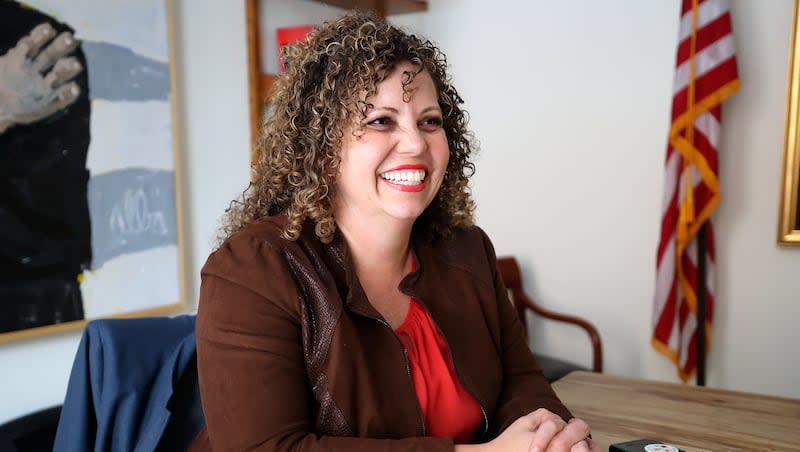Celeste Maloy: Giving women-owned small businesses fair opportunities

Although I am not a woman small business owner, I have certainly learned what it is like to face big challenges in my career and life. I think I can relate to how many women in small business must feel when they’re building everything from the ground up: like David throwing pebbles at Goliath.
Women starting small businesses are often up against big names and deep pockets. They face challenges from lack of access to capital to a lack of affordable child care. And while I don’t believe women need handouts, they do need to be given fair chances to compete.
With that in mind, I’m proud to have introduced a bill that supports women-owned small businesses by adding transparency and accountability to government contracting. It’s called the WOSB Integrity Act of 2024, and it will help make sure that a government program aimed at leveling the playing field for women small business owners actually does what it’s intended to do. It is an important part of helping women grow their businesses and thrive in a competitive market.
Historically, the federal government has sought to foster female participation in the marketplace through a federal contracting program called the Women-Owned Small Business (WOSB) Federal Contract Program.
The WOSB program is intended to help women-owned small businesses, or WOSBs, compete and succeed against much larger, more established companies. For many businesses, WOSB certification helps put them on the map and increases awareness of their product or services.
That was the case for Lelani Craig, founder and CEO of a women-owned small business in Utah called CommGap, which offers language services. Big, federal military contractors typically get the bulk of large federal contracts. But after CommGap became certified and won a WOSB contract through the Treasury Department, everything changed.
“This helped us enhance our business offerings,” said Lelani. “And as a company that employs minority individuals and contracts with women-owned businesses, the benefits quickly become widespread.”
When the pandemic hit a few years ago, the State of Utah gave the job of translating all COVID-related materials to CommGap.
For women-owned small businesses like CommGap hoping to access the WOSB program’s unique government contracting opportunities, they must meet the U.S. Small Business Administration’s, or SBA, small business size standards, and over half of the business must be owned and operated by women, among other requirements.
Unfortunately, the program is missing its mark. Many women aren’t receiving those federal contracts. While the government has a goal of awarding 5% of federal contracting dollars to women-owned small businesses, it has only met that goal twice since it was established over 20 years ago. In 2022, and out of $694 billion in total federal contracts, only 4.6% of all prime federal contracting dollars went to WOSBs.
Additionally, the program is susceptible to abuse. The SBA Inspector General recently found that while the SBA verifies that firms are women-owned, it simply allows applicants to self-certify that they are a small business. This means that a large firm could abuse the program by falsely claiming to be small, taking away federal dollars meant for small businesses. The WOSB Integrity Act of 2024 would help fix this by requiring the SBA and other certifying entities to reasonably verify that only true small businesses receive federal aid through the program.
This isn’t about adding red tape. And this isn’t about the government picking winners and losers. The government is already doing that. We just want to make sure that women are part of federal contracting, and that the competition is fair. This commonsense, bipartisan piece of legislation is a good first step towards leveling the playing field, so women entrepreneurs have a fighting chance in the marketplace.
My bill will also increase transparency and help us understand why the federal government’s goal is barely being met, especially when the amount of federal contracting dollars being offered is so small compared to the percentage of women-owned small businesses across the country.
Women in small business are an inspiring piece of the American story. Their big dreams and hard work are paying off. Women own over 40% of small businesses in the country. They generate nearly $1.8 trillion in revenue and employ nearly 10 million people. In 2022, they created about half of all new U.S. businesses. As a member of the House Small Business Committee, I am excited to help advance their ingenuity and determination through increased access to federal contracting programs.
Congresswoman Celeste Maloy, R-UT, represents Utah’s 2nd Congressional District in the U.S. House of Representatives. She is a member of the House Small Business Committee.

